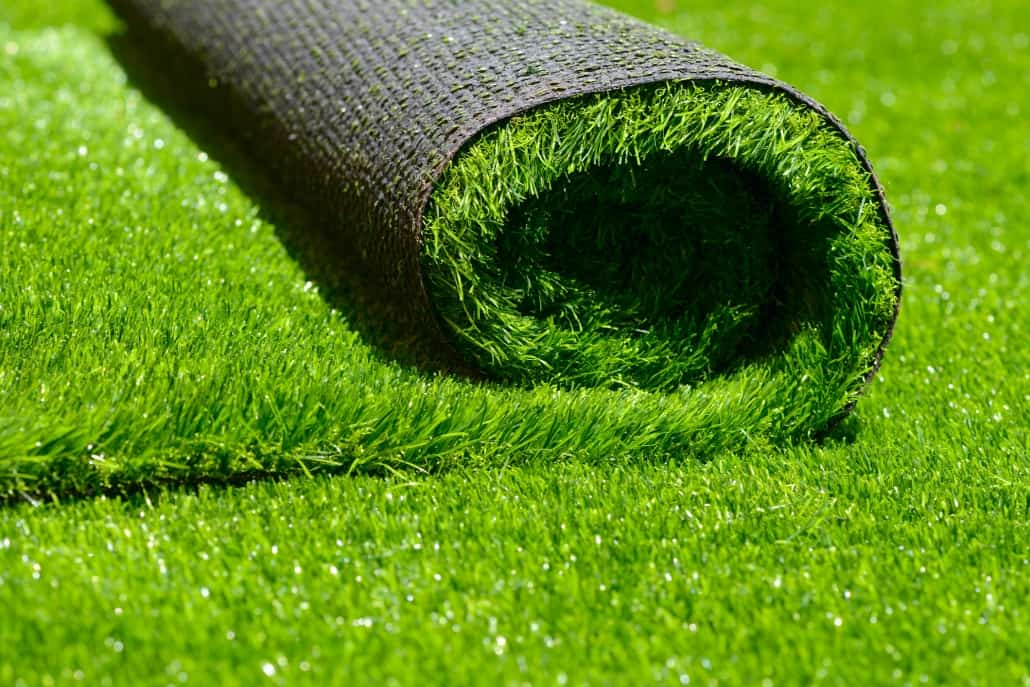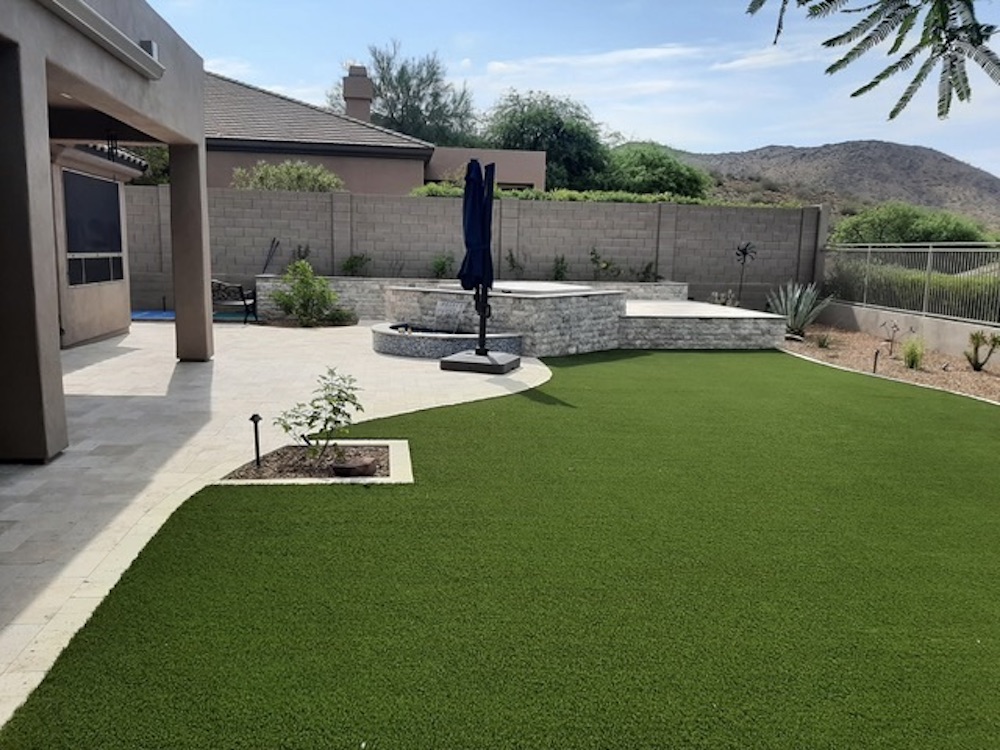Enhance Your Outdoor Space with Backyard Artificial Grass Canoga Park
Enhance Your Outdoor Space with Backyard Artificial Grass Canoga Park
Blog Article
Top Factors to Think About Artificial Turf for a Low-Maintenance and lush Yard
As homeowners increasingly look for lasting services for outdoor areas, artificial turf offers an attractive choice to standard grass. The benefits extend past mere appearances and sustainability; exploring the complex implications of man-made turf exposes a detailed approach to yard management that merits deeper consideration.
Year-Round Plant
One of one of the most substantial benefits of man-made turf is its capability to supply year-round plant, no matter climate problems. House owners often encounter challenges in maintaining a lively yard due to seasonal adjustments, droughts, or hefty rains. Fabricated lawn gets rid of these issues, ensuring a regularly lavish look throughout the year.
This synthetic choice is crafted to hold up against different weather condition scenarios, from sweltering summertime heat to cold winter months temperatures. Unlike all-natural yard, which might brown or come to be patchy throughout extreme problems, man-made grass maintains its dynamic shade and appearance, boosting the aesthetic charm of any landscape.
Furthermore, artificial grass is resistant to parasites and diseases that normally influence natural yards. This durability adds to its enduring beauty, as there is no need for chemical treatments or plant foods that can be damaging to the atmosphere. House owners can enjoy the aesthetic advantages of a well-kept lawn without the cyclical difficulties postured by all-natural lawn care.
Reduced Upkeep Initiatives
Man-made lawn considerably decreases upkeep efforts, permitting home owners to delight in a beautiful lawn without the taxing jobs connected with natural yard treatment. One of one of the most notable advantages of synthetic turf is the removal of regular mowing. Without requirement for a lawnmower, homeowners save both time and the price of maintenance related to this equipment.

Cleaning man-made grass is simple; a simple rinse with a hose pipe or the periodic brushing to eliminate particles is typically enough - artificial grass. This simplicity of treatment enables homeowners to spend more time appreciating their outdoor rooms as opposed to laboring over them. In summary, the decreased upkeep efforts associated with man-made yard make it an attractive selection for those seeking a gorgeous, hassle-free lawn
Water Preservation Benefits
The considerable decrease in upkeep efforts connected with synthetic turf includes water conservation, making it an environmentally friendly alternative for property owners. Conventional lawns require substantial quantities of water to continue to be rich and vibrant, typically bring about too much water use, specifically in deserts. On the other hand, man-made grass gets rid of the demand for regular watering, drastically decreasing the general water intake in your yard.
By choosing for synthetic grass, home owners can conserve countless gallons of water each year. This shift not just benefits private homes yet likewise contributes to wider environmental efforts targeted at lowering water waste. In areas experiencing water scarcity, the fostering of man-made lawn can play a substantial duty in minimizing the effects of drought and making sure that beneficial water sources are utilized a lot more efficiently.
Moreover, the installation of fabricated turf can help reduced community water need, profiting the neighborhood in its entirety. With growing awareness of ecological problems, choosing man-made lawn acts as an aggressive action towards sustainable landscape design, assisting to maintain natural water resources while maintaining a cosmetically pleasing outdoor area (backyard artificial grass). In recap, artificial grass presents a compelling service for water preservation, aligning environmental responsibility with modern-day landscaping needs

Parasite and Allergic Reaction Decrease
A substantial benefit of mounting artificial lawn is its capacity to decrease pests and allergens in outside spaces. Standard grass yards usually function as breeding premises for bugs such as mosquitoes, ticks, and ants, which can produce pain and wellness risks for family pets and families. On the other hand, artificial turf gets rid of the organic product that draws in these bugs, thus substantially lowering their populaces in your yard.
In addition, natural grass can nurture mold and mildew, pollen, and other allergens, which can cause allergic reactions and respiratory problems for delicate individuals. Synthetic lawn offers a cleaner environment, decreasing artificial grass the capacity for allergenic reactions. Unlike all-natural yard, synthetic grass does not create plant pollen, making it an exceptional alternative for allergy patients looking for to enjoy their outside rooms without the risk of flare-ups.
In addition, the absence of dirt in synthetic grass implies there is less dust and dust, additional decreasing airborne irritants. This low-maintenance choice not only improves the aesthetic charm of your yard but also advertises a healthier exterior atmosphere, permitting family members to enjoy their yards without the constant fear of allergens and insects. Thus, synthetic grass is a calculated option for those prioritizing convenience and health and wellness in their outdoor space.
Long-Term Cost Savings
Buying artificial turf can cause considerable long-term expense savings for home owners. While the preliminary investment may appear substantial, the financial advantages over time can be significant. Synthetic grass eliminates the requirement for normal yard upkeep expenses, such as mowing, fertilizing, and watering. Traditional yards typically call for substantial resources to keep a lush look, particularly in locations prone to dry spell or extreme climate conditions.
Moreover, the durability of synthetic turf better enhances its cost-effectiveness. Many high-grade synthetic yard items can last 15 to 25 years with minimal upkeep, minimizing the demand for substitute or substantial fixings. In contrast, all-natural yard may require regular reseeding and routine navigate to this site treatment, which can rapidly include up in costs.
Energy cost savings are an additional crucial element. Property owners can anticipate to see lower water bills, as synthetic grass does not need watering. Additionally, the decrease in grass care services can free up important time and resources, enabling house owners to assign their budget plans in other places.
Verdict
In recap, fabricated turf offers various advantages for homeowners seeking a low-maintenance and dynamic landscape. Its capability to supply year-round plant, combined with lowered maintenance initiatives and substantial water preservation, makes it an appealing selection. In addition, the reduction of insects and irritants adds to a healthier outside environment. Ultimately, the long-term expense savings linked with fabricated grass solidify its status as a practical and lasting remedy for improving outdoor areas.
Artificial yard substantially lowers upkeep initiatives, permitting home owners to delight in an immaculate yard without the time-consuming jobs linked with natural yard care.The substantial decrease in maintenance efforts associated with official website synthetic lawn extends to water preservation, making it an environmentally friendly option for house owners. In comparison, synthetic lawn removes the need for normal watering, significantly minimizing the total water usage in your lawn.
In locations experiencing water shortage, the adoption of fabricated grass can play a significant function in alleviating the effects of drought and ensuring that beneficial water sources are made use of more successfully.
With growing awareness of ecological issues, selecting fabricated grass offers as a positive step towards lasting landscaping, helping to protect all-natural water resources while keeping a visually pleasing exterior room.
Report this page